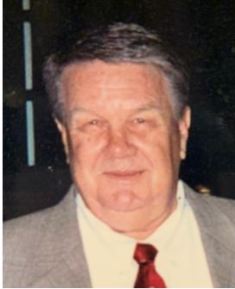


 |
 |  |
Freddie Keith "Fred"
Means
Nov 1, 1936 - Jan 21, 2021
Posted by Jo Aguirre
 |
Havenbrook
Funeral Home
Norman, OK
(permission granted)
Fred Means was born November 1, 1936, the son of Champ B. Means and Bonnie Louise Taylor, in Orr, Oklahoma. Fred is survived by his wife, Yasodhara Mitty Mohanty Means, of Norman, OK, an active attorney, retired previously from the State of Oklahoma. Fred had seven children. The oldest, Champ B Means, passed away in 1997.
He is survived by six
children, Joseph V. Means, of LaGrange, Georgia, Justin
Bradfield, of Atlanta, John Newton Means, of Norman,
Oklahoma, Padmini Menu, of Philadelphia, Bonnie
Christine Lane, of Tampa, Florida, and Thomas Keith
Means, of Tampa, Florida, and many grandchildren, and
even a great-grandchild.
During the civil rights movement, while studying at Stanford, Fred took a leave of absence to participate in the civil rights movement by actually helping face to face black individuals and families as a social worker for the U.S. Dept. of Health and Human Services. He saved the life of a 16 year old black pregnant woman and her breached baby by taking her in his own car to the closest hospital Ė which was a white only hospital. After they refused to accept her, Fred held shotgun to the doctor and said that the law requires you to deliver this baby and save the life of the girl. Fred also saved the life of a man who appeared at his door with seven bullets in his chest. Fred removed the bullets from his chest, as he was taught by his father, an old time Oklahoma cowboy. This man lived to a ripe old age, and told Fredís son, Joseph Means, that Mr. Freddie was a great man. As another example, Fred took up the cause of a young black boyís painting that was ordered to be taken down because the artist was black. The young artist won a competition for his painting and it was hung up in a school. Once discovered that the artist was black, the boy was ordered to take down his painting. Fred advocated for the boy and said that the painting must stay in the school. This invited the wrath of the Klu Klux Klan, ending with a shoot out and a stand off outside of his house, which Fred won. Fred also took up the cause for unequal housing for the blacks in Georgia. These eventually landed in the court system as famous historical cases. At the time, Fred could only persuade a new young lawyer to take the case as no other lawyers would touch these cases. These cases ended in triumph for the civil rights movement in Georgia. After making his mark on the civil rights movement, Fred returned to Stanford to finish his graduate studies after already having studied American Civil War History ad European History, but this time focusing on Chinese history. While at Stanford, Fred continued to work for the Stanford Research Institute and Hoover Institute, and contributed towards the opening of the relationship with China under Secretary of State Kissinger.
When international politics thwarted his planned trip to the Philippines to complete his PhD work in 1975, Fred returned home to Oklahoma with his parents, whom he took care of till their death. Fred started his law enforcement career as a Deputy Sheriff in Johnston County. Within a year he was Chief of Police in Tishomingo, and he was also well on his way to a truly historic law enforcement career. When Agents of the Oklahoma Bureau of Narcotics came to assist his department in an investigation, he found one of his lifeís callings in drug enforcement. He joined the OBN in 1977, working his way up to supervisor and ultimately was named Director of the Oklahoma Bureau of Narcotics in 1988. His kindness never distracted from his keen awareness of eminent danger and rescue of those around him. Fred was respected by his fellow employees and others in the same trade as he across the United States of America as a visionary and a leader. For his knowledge and innovated ideas of linking intelligence and information for the benefit of those in his trade. His idea was to be able to share information and intelligence with all members of law enforcement in local, federal, and international without the territorial needs. Fred also worked on introducing drug courts and advocated for drug courts across America. As a visionary, he saw that drug addicts should be treated with compassion and receive treatment for their addiction. As an OBN Agent, Fred honed his skills as an investigator without peer. He focused and specialized on complex criminal conspiracy cases because his academic studies of history taught him that the scourge of illegal drugs was best attacked at its source. He and like-minded agents with whom he worked literally revolutionized the way drug investigations are conducted. During his tenure as OBN Director, Fred Means established himself as perhaps the most visionary law enforcement administrator of his day. He placed a premium on professionalism among agents, increasing the educational requirement to require a college degree for most starting agents. It was Fredís vision which formed the Association of Oklahoma Narcotic Enforcers in 1989, a professional organization which now boasts over one thousand members and focuses on training and professionalism among drug enforcement officers. In 1991, Fred directed his Intelligence Division to undertake and publish a statewide survey of street gangs in Oklahoma, which at that time were just making inroads into rural parts of our state bringing with them drug trafficking and other violent crime. It was also during Fredís tenure that the Bureau instituted the nationís first computer assisted prescription monitoring program to fight he diversion of legal drugs and medicines into illicit channels. After Fredís retirement from the Oklahoma Bureau of Narcotics, he was an investigator for Attorney General Drew Edmondson, where he worked on a variety of investigations ranging from the Oklahoma City Bombing, domestic extremists, to solving cold cases. He then worked with the Cherokee Marshall Service and reorganized their drug task force, felony criminal investigations, and was responsible for the creation of a SWAT Team. He served as a consultant and educator about the drug trade in retirement. A service was held at the Orr Cemetery in Ringling, Oklahoma on January 29, 2021.The family asks that in lieu of flowers or gifts, memorial gifts be give to The Nature Conservancy of Oklahoma, 10425 S. 82nd East Avenue #104, Tulsa, OK 74133. Please make checks payable to The Nature Conservancy of Oklahoma and indicate in the memo line of the check that the gift is in memory of Freddie K. Means.
|Orr Cemetery| |Love County Cemeteries| |Home|
This site may be freely linked, but not duplicated in any way without consent.
All rights reserved! Commercial use of material within this site is prohibited!
© 2000-2026 Oklahoma CemeteriesThe information on this site is provided free for the purpose of researching your genealogy. This material may be freely used by non-commercial entities, for your own research, as long as this message remains on all copied material. The information contained in this site may not be copied to any other site without written "snail-mail" permission. If you wish to have a copy of a donor's material, you must have their permission. All information found on these pages is under copyright of Oklahoma Cemeteries. This is to protect any and all information donated. The original submitter or source of the information will retain their copyright. Unless otherwise stated, any donated material is given to Oklahoma Cemeteries to make it available online. This material will always be available at no cost, it will always remain free to the researcher.